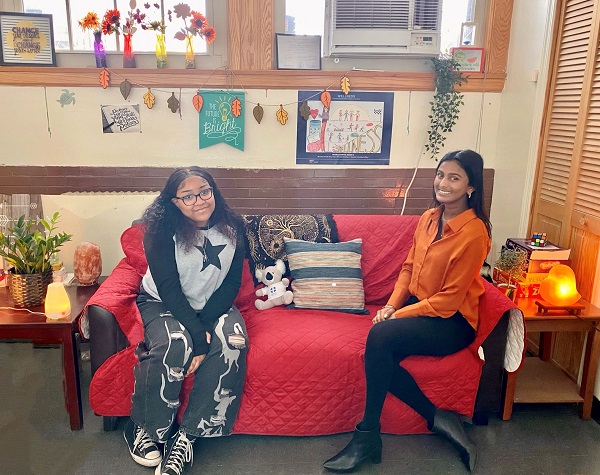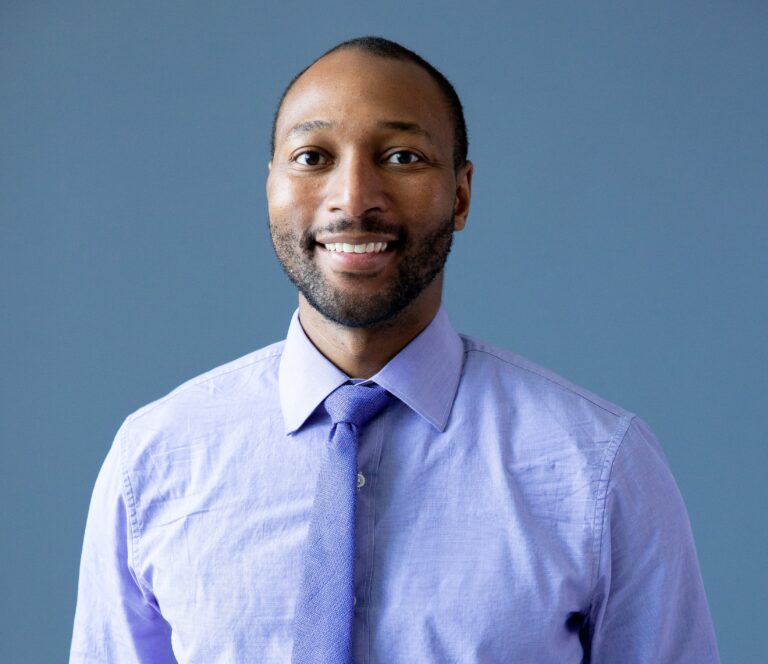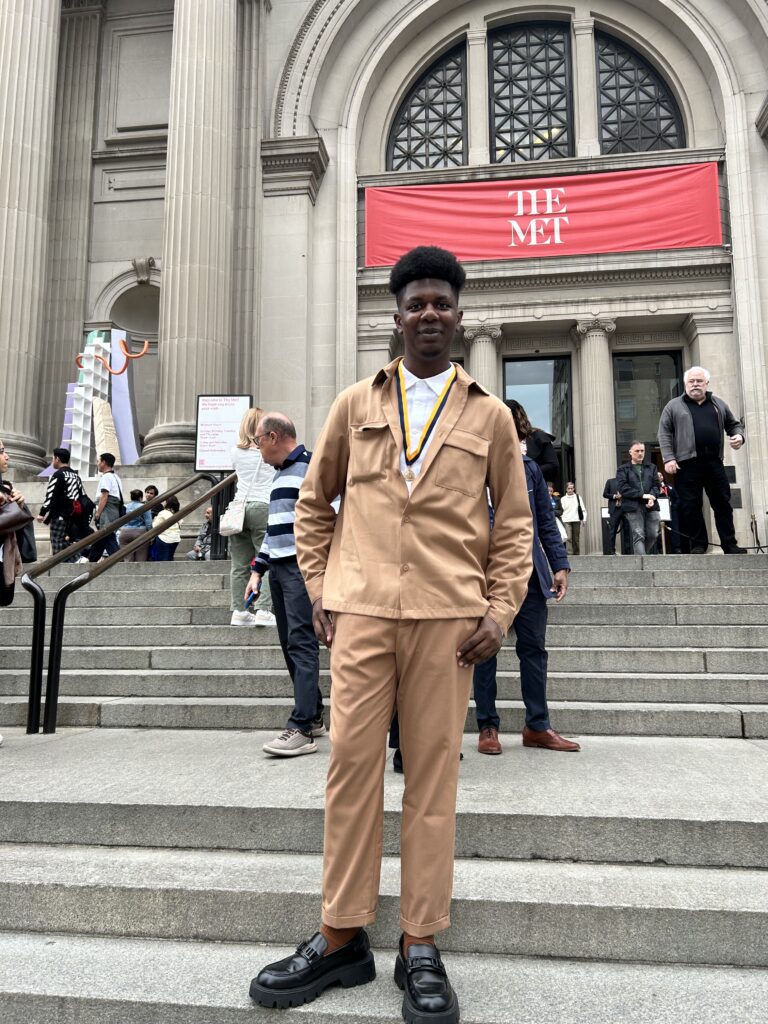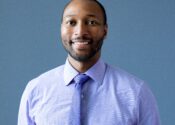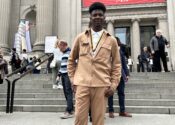By Anita Sanehi, LCSW
School-Based Clinical Coordinator

School-based Clinical Coordinator Anita Sanehi (right) with her client Kayla
As an eager teenager majoring in sociology and psychology, I began working as a youth counselor at the afterschool program in J.H.S 185.
Every stage of life has its own importance, and even though I was still a young adult, I believed in the powerful impact of childhood. Schools have a great opportunity to be a safe haven and steady support for many students. Sometimes students spend more time at school than with their families. At J.H.S. 185, the school and Child Center staffs were welcoming, kind, and supportive. I was able to facilitate and assist in classes from homework help, STEM groups, arts, and community services. I was even given the opportunity to create a club of my own, Culture Club. There is so much to celebrate in each of our beings, and knowing where we come from and our history is important.
I continued to work at J.H.S. 185 until I graduated Queens College and Columbia University’s School of Social Work.
I soon became a Youth Advocate Coordinator under the supervision of Deepmalya Ghosh, providing counseling supports to students at three different Child Center sites: the Parsons Community School, J.H.S. 185, and P.S. 123. This gave me the opportunity to learn about the varying intricacies in programming of different school communities. It helped me develop the skill of working with different demographics from elementary to middle schools. I was also very fortunate to have mentorship from my supervisor.
This role was the foundation for School-Based Mental Health before it became official.
In 2015, for the first time in NYC history, schools were allowed to have their own mental health centers on site. It was about time. I never understood why mental health has such a stigma in education when it is essential to our humanness. How we think, how we feel, how our bodies have learned to survive, how we make decisions, how we take care of our physical health–underlying everything is mental health. It is essential to our being, so why are we not educated about this? Why are we not given resources to understand why our nervous systems and bodies react the way they do, or understand how we learn to think?
When I was presented with the opportunity to be the first clinician to begin the SBMH program at Richmond Hill High School, I was honored.
Richmond Hill High School is a community close to my heart. About 60% of Richmond Hill residents were born in another country, and it has one of the highest numbers of Guyanese residents outside of Guyana in the world. So many community members—including my own grandparents and parents—worked so hard and made so many sacrifices to leave their home country in hopes better opportunities and life experiences for their families.
I knew that in serving this community, my family and my ancestors would be proud of me.
I have served as the main school-based mental health clinical coordinator at Richmond Hill High School for the last eight years, with great guidance and support from my supervisors, Micki Segel, Kwan Wong, and Irianna Munoz. I work with the school community to offer a range of mental health services, including but not limited to individual therapy, family therapy, crisis intervention, de-escalation, student workshops, parent workshops, and professional development for staff. I also provide psychoeducation on mental health and therapy. Since so many of my clients are students of color who either recently immigrated or are first-generation, I treat many cases of diagnosed adjustment disorders, anxiety, depression, and trauma.
When you think about power and privilege, and all of the intersectionalities that exist in our identities, our mental health is impacted by it all. From the color of our skin, to our socioeconomic status, to our familial education, to our health and abilities, to our gender identification, to how others judge us or treat us for being what we were born into… in Richmond Hill, our students experience many areas of oppression and injustice. Those who recently immigrated also must manage the stressors of figuring out how to blend their cultural values with new norms. This affects how they think and feel about themselves and the world around them. Too often students end up having core beliefs that they are not good enough or that they are undeserving—even though it is not the truth.
Providing a safe space, compassion for being human, being interested and curious about their stories, and providing education and time to practice skills, role model positive healthy thoughts and language—it is really powerful and beautiful. I help students and families build awareness and identify areas where they feel pain—what caused it, and how I can assist in giving them tools so they can self-heal.
This is why I wanted to become a social worker. To be a light, to be a change, to be a source of our human truth. I always have believed that I may not be able to change the world, but I can help others shape the ways they see and interact with the world and themselves—and it can make all the difference.
I have known since I was young that I wanted to be different from what society expected of me. I was a first-generation Guyanese American woman of color who had autoimmune issues. Healing is my purpose. I aspire to ignite the healers in ourselves. Social work is great because it is all about helping others, not just in the therapeutic way, but in so many other ways, like community, connection of resources, and advocacy. Social work leads the way for social change, empowerment of people and communities, for the better for us all. There is power in being seen, heard, and loved… and we are worthy of it.
